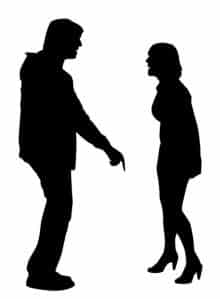
Last year when NFL Raven’s player Ray Rice was accused of assaulting his fiancé, he was suspended for just two games. According to the New York Times, this penalty was seen as “too light and inconsistent with punishments for other offenses.” After much negative press, the NFL introduced a new penalty system to handle cases of reported domestic abuse, which included repercussions more severe than what had been in place prior to the Ray Rice incident. Additionally, Ray Rice was suspended indefinitely and was eventually released from the Ravens, though he is still a part of the NFL as a free agent.
More recently, a similar event unfolded with NASCAR driver Kurt Busch, who allegedly strangled and beat his ex-girlfriend. In light of this news, NASCAR suspended Busch indefinitely just two days before the season opening of the Daytona 500. This was an unprecedented move by NASCAR, as Busch is the first driver NASCAR has ever suspended for domestic violence.
These incidents, along with many more, show that domestic abuse is present across all economic and social spectrums.Unfortunately, domestic violence is common in relationships, not only in marriages or those consulting with Chicago divorce lawyers. In fact, according to the 2010 National Intimate Partner and Sexual Violence Survey conducted by the Center for Disease Control, “more than 1 in 3 women (35.6%) and more than 1 in 4 men (28.5%)” have had a violent experience with their intimate partner.
Based on these statistics, it is important to understand the many situations that can be categorized as domestic violence. The American Bar Association defines domestic violence as “a pattern of many behaviors directed at achieving and maintaining power and control over an intimate partner, such as physical violence, emotional abuse, isolation of the victim, economic abuse, intimidation, and coercion and threat.” Though domestic abuse is illegal throughout all of the United States, each state’s laws differ slightly. In Illinois, Governor Quinn signed House Bill 958, effective January 1, 2014, that granted greater protection to victims along with making repeat offenses a felony. For more information on that particular law, please refer to my previous blog post on my Divorce Lawyers Chicago website.
Domestic abuse can be handled civilly or criminally, and sometimes both. However, if you are the victim of abuse, you should consider calling the police. Also, you may file for a court order of protection.Generally, a court order of protection prohibits the abuser from committing additional abuse. Typically court orders of protection are designed to fit your specific needs and case. In Illinois, violating a court order of protection is a Class A misdemeanor. If an order of protection is violated a second time, the state may consider it a felony. In Chicago, a civil order of protection can be obtained with the assistance of a Chicago divorce attorney or on your own. A court order of protection may also be requested along with your divorce case or a criminal case.
If you or someone you know is the victim of domestic violence, and you want more information on your rights in Illinois, please contact me at Divorce Lawyers Chicago.



